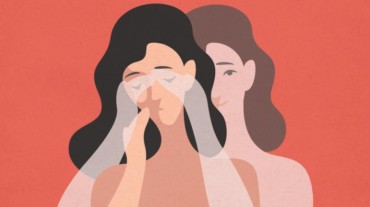
Even today, the very mention of HIV and AIDS brings forth all kinds of reactions. There are some who express empathy, while others stay mum. There is another spectrum of people who raise eyebrows and speak about it in hushed tones. This is where the problem lies — the emotional and mental stigma that still persists around HIV/AIDS.
The world may have made significant progress, but division, disparity and disregard for human rights has exacerbated. Moreover, with Covid-19 taking over our lives, the inequalities have further widened. That’s why, the World Health Organisation has dedicated the theme ‘End inequalities, End AIDS’ for World AIDS Day 2021.
So, how do these inequalities manifest as mental and emotional stigma in the lives of HIV/AIDS victims? Dr Bina Nangia, Consultant Psychologist at IWill, tells HealthShots more about this.
Dr Nangia says that HIV/AIDS stigma constitutes the negative attitudes and beliefs about people with HIV. It is the prejudice that comes with labelling an individual as a part of a group that is believed to be socially unacceptable.
“This can show up in various ways – there is a perception that only certain groups of people can get HIV, or making moral judgments about people who take steps to prevent HIV transmission. Some also believe that people deserve to get HIV because of their choices,” she adds.
But what really is discrimination? “While stigma refers to an attitude or belief, discrimination is the behaviour that results from those attitudes or beliefs,” says Dr Nangia.

HIV stigma and discrimination affects the emotional well-being and mental health of people living with the condition. Dr Nangia explains that these people often internalise the stigma they experience and begin to develop a negative self-image. They may fear they will be discriminated against or judged negatively if their HIV status is revealed.
“‘Internalised stigma’ or ‘self-stigma’ happens when a person takes in the negative ideas and stereotypes about people living with HIV, and starts to apply them to themselves,” said the expert.
Internalised stigma can lead to some of the following feelings, which keep people from getting tested and treated for the condition:
Also, depression, impulsivity, substance abuse, intoxication, personality vulnerabilities are all associated with a risk of HIV infection, which causes AIDS, Dr Nangia stated.
Select Topics of your interest and let us customize your feed.
PERSONALISE NOW“The most common mental disorders among HIV-infected patients are depression and depressive symptoms. Psychosis disorders may arise before or any time during the course of HIV infection,” she adds.
Also Read: 8 facts about HIV AIDS all millennial women with multiple sex partners must know

Stigma and discrimination is rooted in the fear of HIV, and various misconceptions about how the illness is transmitted and what it means to live with it today.
“The lack of information and awareness combined with outdated beliefs has led people to believe a lot about HIV that doesn’t even exist. Additionally, many people think of HIV as a disease that only certain groups get. This leads to negative value judgments about people living with HIV,” explains Dr Nangia.
That’s why it is essential to consider the importance of mental health and HIV, before it is too late. At times, the stigma can cause feelings of self-harm in people, making them feel trapped or hopeless. If that’s the case, it is essential to seek the help of a healthcare specialist or a mental health practitioner.
Get Latest Updates on Mind, Emotional Health, Happiness Hacks, Mental Health